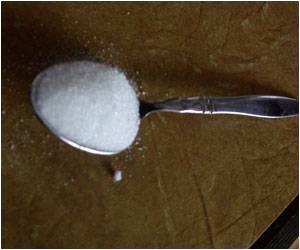A new process helps obtain sweeteners like mannitol or ribitol from widely available, renewable, cheap products like glucose or arabinose.

‘A new sustainable method prepares polyalcohols from biomass using two consecutive metallic catalysts featuring molybdenum and ruthenium.’





Now, scientists at ETH and ICIQ came up with a solution based in
heterogeneous catalysis, a common approach in industry - oil cracking,
car catalysts, synthesis of ammonia are just some examples. The idea
combines a first step where sugar atoms are reorganized thanks to a
molybdenum-based catalyst and a second hydrogenation step catalyzed by
ruthenium. This method allows researchers to obtain valuable
polyalcohols like mannitol or ribitol from cheap and widely available
products like glucose or arabinose.The team at ICIQ, led by Prof. Núria López, carried out the computer simulations that helped improve the design of the catalysts. "Thanks to the powerful resources of the Barcelona Supercomputing Center and the Spanish Supercomputing Network we were able to model catalytic processes with an unprecedented level of precision and complexity," says López. "This new approach increases the potential applications of biomass in industry," she concludes.
Source-Eurekalert












